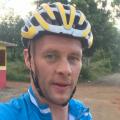
ANYONE who has competed in sport will know how much politics is involved - from grass roots all the way to the top.
As athletes, we just want to train and compete, but we sometimes get pulled into debates we don’t want to have.
I couldn’t help thinking about this as I observed the Novak Djokovic situation unravelling in Australia this week.
As I’m sure you will know, the tennis superstar has been refused entry into Australia, despite initially being granted an exemption by tournament organisers despite his unvaccinated status. Other athletes have been pulled into the situation too.
I felt for Jamie Murray when in a press conference he was asked to comment on his thoughts on Djokovic.
I love high performance sport for the sport.
And one of the reasons I mostly stay away from social media is so that I don’t get bombarded with the political side of situations like Djokovic’s ban on playing in Australia.
Where we place our attention can have a massive impact on our thoughts, feelings and emotions which is then seen in our behaviours.
I have always loved sport for this reason - as research shows that the more we move our bodies the more it improves our emotions.
So rather than focusing on the Djokovic affair and getting caught up in wither it is right or wrong, I want to share a conversation on a beach in Negril Jamacia that reinforced to me why I love sport.
My disability is often a starting point for a conversation.
I see that as one of the gifts from my cancer and spinal cord injury.
Let’s face it there must be some perks to my situation.
Mostly people are curious, and this curiosity has brought some very interesting people into my life that I would have never met.
Before Christmas I found myself chatting with Yohan Blake and just before 2021 came to an end, I met Fred Klevan whilst walking along the beach in Negril.
Fred spotted me and without pausing asked what had happened and that he could see I was an athlete.
Dressed from head to toe in Nike kit might have been more of a give away than me dragging my leg along the beach.
But whatever it was that brought Fred over it sparked a very motivating conversation.
The first thing I noticed was this guy was in shape, what I couldn’t believe was he was in his 60s.
I asked what brough him to Negril, he told me it was for a triathlon years ago that he came down to race in.
Fred is what I love about sport. He does it because he loves it, and he understands the benefit of moving your body and looking after it.
As we chatted, I was inspired by his energy and perspective on life. I know my passion for sport at this level is what has kept me alive.
As we shared training stories Fred casually drops in that he had raced Kona (Ironman World Championships) in the 80s - an era that gave the world one of the greatest duals in sport when Dave Scott and Mark Allen went head-to-head on many occasions.
It was no shock to me that Fred had raced Kona, as I said he is in incredible shape.
But when someone tells you they raced Kona you know they are up there with some of the fittest humans on the planet.
It was in Kona that Fred first met Oakley when they had a small stand selling a few pairs of glasses.
Thirty years later he still works for the brand and that’s what I find most inspiring.
Klevan not only worked full time, but he has also competed his whole life and lived his passion of sport.
In April of 2002, Klevan broke the American Masters 10,000 meter track record with a time of 30:25 to add to a glittering endurance career, and he is still training daily even today.
Fred is an example of how sport can have a positive impact on your life and inspire others to move their bodies.
He has an energy that comes through as we chat on the beach and before I know it I am wearing a pair of Oakleys he kindly gave me.
Encounters like this are why I love sport. It’s not winning the medals but the moments when you share a love and a passion and leave feeling inspired to go smash whatever goal you set.



Comments & Moderation
Readers’ comments: You are personally liable for the content of any comments you upload to this website, so please act responsibly. We do not pre-moderate or monitor readers’ comments appearing on our websites, but we do post-moderate in response to complaints we receive or otherwise when a potential problem comes to our attention. You can make a complaint by using the ‘report this post’ link . We may then apply our discretion under the user terms to amend or delete comments.
Post moderation is undertaken full-time 9am-6pm on weekdays, and on a part-time basis outwith those hours.
Read the rules hereLast Updated:
Report this comment Cancel